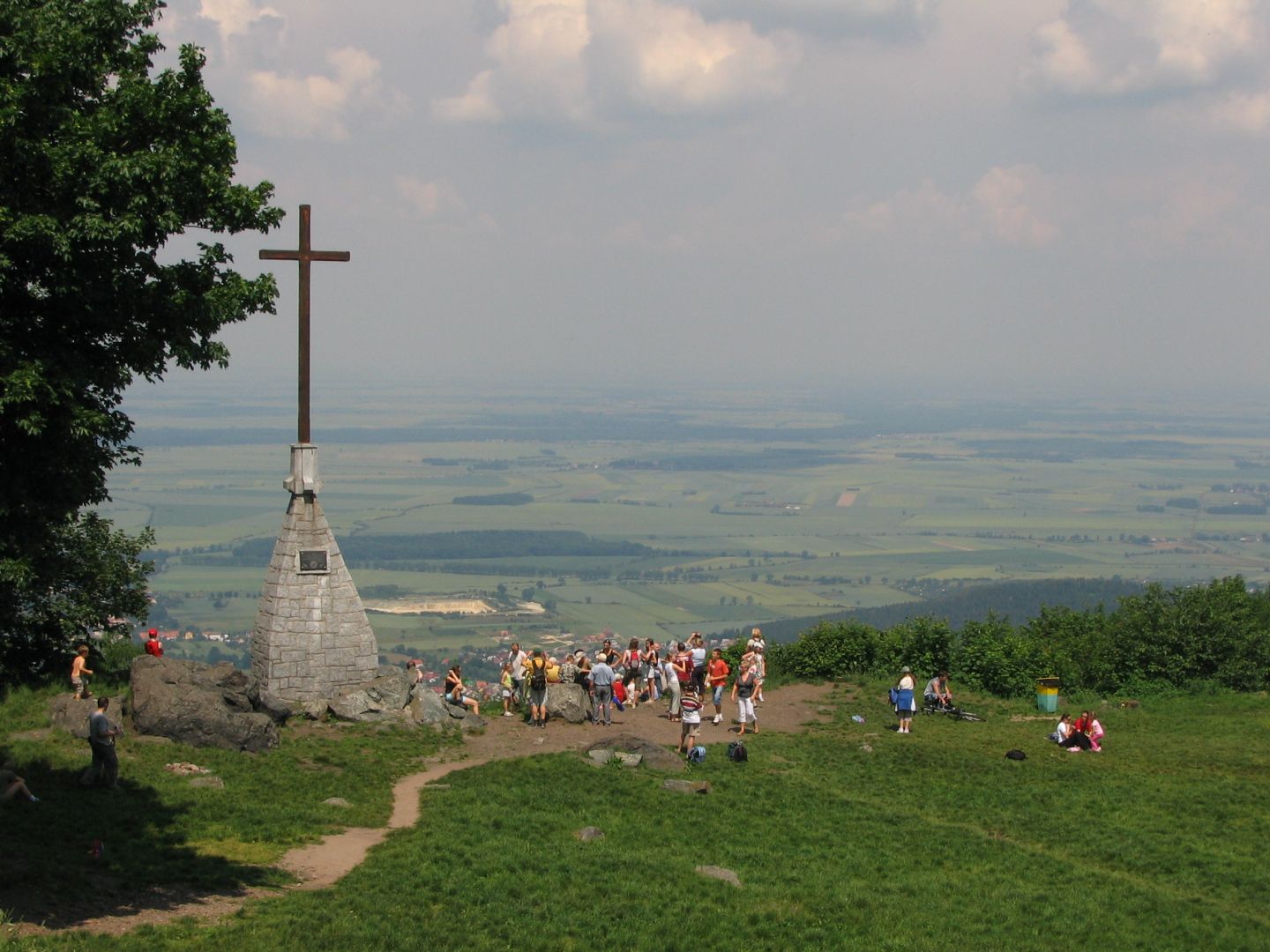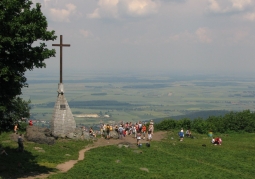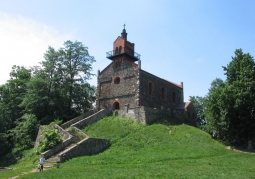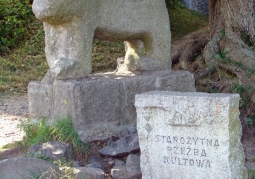Góra Ślęża - Góra Ślęża Nature Reserve - Ślężański Landscape Park
No weather data
0.0 /5
Number of ratings: 0
The highest peak of the Ślęży Massif and the entire Przedmieście Foothills, built mainly of granite and gabra, rising to a height of 718 m a.s.l. From the 5th to the 8th century BC it was a sacred mountain of the Lusatian tribes, and later Ślężan, most probably associated with the cult of the sun. The massif has an impressive appearance due to its considerable relative height - over 500 m. At the top there is a church, a shelter, the Millennium Cross, a TV and observation tower. People who like mysteries and riddles will definitely be interested in buried adits once hollowed out by the Germans. Interesting is also the fact that five years ago, unique in the world deposits of titanium ore were discovered here. Springs on the slopes of Ślęza have been used for centuries, initially as cult or ritual sources and now because of their taste as a source of drinking water.
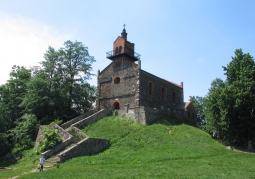
Church on Ślęża
Category: ChurchesThe church's history dates back to the early 12th century during the reign of Bolesław III. In the second half of the 16th century, the Augustinians built a wooden chapel on the ruins of a pre-existing castle. In the...
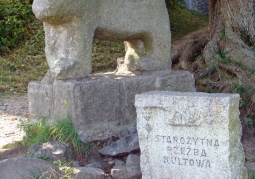
Bear
Category: MonumentsAlso called Boar. One of several statues - probably Celtic, located on the top of Ślęża. During the Christianization period, in medieval times, the custom of throwing sculptures (intended to symbolize Evil) with...
Komentarze
No results
Nearby places

Church on Ślęża - Góra Ślęża - Góra Ślęża Nature Reserve
Category: ChurchesThe church's history dates back to the early 12th century during the reign of Bolesław III. In the second half of the 16th century, the Augustinians built a wooden chapel on the ruins of a pre-existing castle. In the...
1 km

Bear - Góra Ślęża - Góra Ślęża Nature Reserve
Category: MonumentsAlso called Boar. One of several statues - probably Celtic, located on the top of Ślęża. During the Christianization period, in medieval times, the custom of throwing sculptures (intended to symbolize Evil) with...
1 km
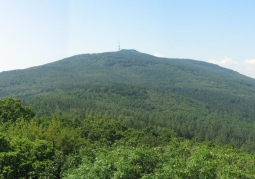
Góra Ślęża Nature Reserve - Ślężański Landscape Park
Category: Nature reservesIt covers an area of 141.4 ha, covers, among others the top of Ślęża. It was created to protect historical monuments and landscape values located in the vicinity of the said peak. In addition, it protects...
1 km

Góra Radunia Nature Reserve - Ślężański Landscape Park
Category: Nature reservesA floristic reserve established in 1958. In 2011, the reserve area was increased to 44.26 ha. It covers the top parts of Radunia built of volcanic rocks with rare plant sites. There are extremely rare and protected...
4 km
Nearby places

Church on Ślęża - Góra Ślęża - Góra Ślęża Nature Reserve
Category: ChurchesThe church's history dates back to the early 12th century during the reign of Bolesław III. In the second half of the 16th century, the Augustinians built a wooden chapel on the ruins of a pre-existing castle. In the...
1 km

Bear - Góra Ślęża - Góra Ślęża Nature Reserve
Category: MonumentsAlso called Boar. One of several statues - probably Celtic, located on the top of Ślęża. During the Christianization period, in medieval times, the custom of throwing sculptures (intended to symbolize Evil) with...
1 km

Góra Ślęża Nature Reserve - Ślężański Landscape Park
Category: Nature reservesIt covers an area of 141.4 ha, covers, among others the top of Ślęża. It was created to protect historical monuments and landscape values located in the vicinity of the said peak. In addition, it protects...
1 km

Góra Radunia Nature Reserve - Ślężański Landscape Park
Category: Nature reservesA floristic reserve established in 1958. In 2011, the reserve area was increased to 44.26 ha. It covers the top parts of Radunia built of volcanic rocks with rare plant sites. There are extremely rare and protected...
4 km
